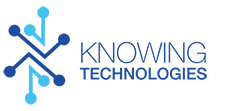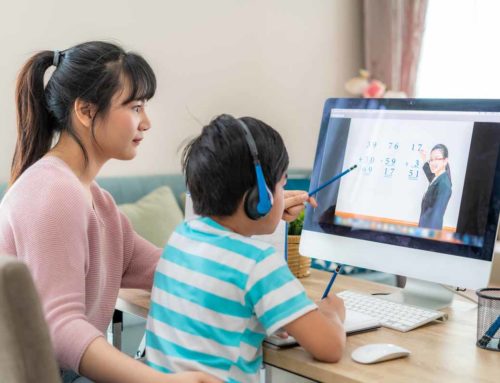Maria Canteli has been teaching Spanish at the Santa Catalina School for the past 12 years and currently teaches grades 7-8. Santa Catalina, a PreK-12 independent school in Monterey, CA, has a robust device program that provides Chromebooks for students in grades 4-8 and MacBooks and iPads for faculty, while inviting students to bring their own laptops at the high school level. Accordingly, the school relies heavily on GSuite and Schoology, their LMS, for collaboration and creation between faculty and students.
A firm believer in student voice, especially in language teaching, Maria describes her classroom as student-centered and strives to actively engage her students with as much Spanish language and culture as is possible. Though relatively easy to accomplish during class, she found that active engagement was quite challenging outside of class, after students left her for the day. And because regular active practice is the key for achieving mastery of a language, she understood both the challenge facing her as well as the opportunity that technology provided to help her overcome it.
Fortunately, the Knowing Technologies instructional coaching program offered the perfect structure for her to pursue her goals around the curriculum she wanted to build for her students. Maria thus applied and became a member of the Santa Catalina’s third Instructional Innovation Cohort, run by Jim Puccetti, Director of Teacher Development and Instructional Design (see here for more details on the program). In her collaboration sessions with Jim over the course of the year, she learned how edtech was about more than just substitution—she learned how to leverage digital tools to go even farther with her students than she otherwise could without them.
In particular, Maria developed an action plan to help more of her students actively speak in the target language. With Jim’s help, Maria used the video tools Flipgrid and Adobe Spark to allow her students to record themselves actively speaking in Spanish, thereby increasing their level of active engagement with the language and giving them more opportunities to build mastery of it.
Jim also helped Maria to organize other online language-learning resources and make them available to students through Schoology. Together, they were able to overcome the limitations that traditional textbooks present, especially for language study, and break the attachments to them by creating more authentic materials of their own.
Going even deeper, Maria reimagined the traditional foreign country project to bolster her students’ level of engagement. She used Google’s Tour Creator and Google Earth to have her students build interactive tours of countries they were curious about. By taking advantage of Google’s tools, her students were able to create immersive experiences that they could share with each other, including using Google Street View to explore specific destinations in greater detail. In the end, Maria was far less interested in the product of her students’ work than she was with the exploratory process by which they put it all together and the skills they learned from doing so. On account of their engagement in the work and their newfound interest in the countries they explored, her students began having spontaneous discussions about traveling and now see their language study as more immediately useful and relevant to them, which has always been one of Maria’s goals.
The coaching experience has inspired Maria to develop a habit of learning new things and a desire to keep growing, while also stoking her passion for teaching. In the coming academic year, she’s eager to implement more of what she learned last year into her curricula, beginning by connecting students outside of the classroom for cultural exchanges. She is also excited to continue learning with her peers, including those who are in this year’s Santa Catalina cohort.
Maria has become so empowered and inspired by her professional growth that she has volunteered to lead professional development opportunities for others, including presenting at the C3Tech conference in Los Angeles this summer, where she led a workshop on the importance of student voice, and she will also present at the Foreign Language Education Symposium in Monterey this November. She was also accepted into the highly selective Google Certified Innovator Academy and will be traveling to Spain for the event in October, where she’ll continue to learn about innovative approaches to teaching, learning, and leadership with other educators.
As the instructional cohort model has spread at the school, more students at Santa Catalina are starting to talk about the exciting activities they’re doing in their courses, and the enthusiasm for innovative teaching is spreading into other classrooms. More faculty at the school are collaborating and sharing across departments, and the faculty room is becoming a nexus for the exchange of ideas, resources, and exciting new learning experiences.
To any teachers considering applying to their school’s instructional technology coaching program, Maria urges, “Just do it! Whether or not you consider yourself to be technically proficient, your skill level doesn’t matter, since there is so much to learn.” She adds that, “because KT works with you at your level and the program is tailored to each person’s needs, you can always learn more and keep growing from there. It is the best PD you can ever do and the best investment of your time.”
Find out what else Maria is up to on Twitter at @mariafcanteli and stay tuned for more cohort stories here on our blog or at @KnowingTechK12. And please let us know if you’d like to learn more about how we work with schools, since we’re always happy to share our own story.





